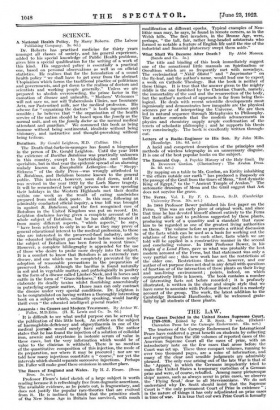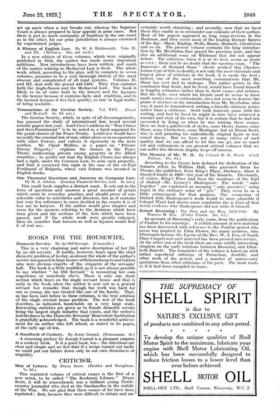THE LAW.
Prize Cases Decided in the United States Supreme Court, 1789-1918. Edited by J. 'B. Scott. 3 vols. (Oxford :
Clarendon Press for the Carnegie Endowment. 63s. net.)
The trustees of the Carnegie Endowment for International Peace have conferred a great benefit on students by collecting and reprinting from the 250 volumes of reported cases of the American Supreme Court all the cases of prize, with an introductory note on the few cases that arose before the Court was set up. These three compact volumes, running to over two thousand pages, are a mine of information, and many of the clear and sensible judgments are admirably phrased. The only case arising out of the late War is that of the Appam,' in which the Germans impudently tried to make the United States a temporary custodian of a German prize and were, of course, rebuffed. Among many picturesque ships' names, such as always occur in prize cases, we observe the Flying Scud,' dear to all Stevensonians. We do not understand why Dr. Scott should insist that the Supreme Court is " the only permanent Court of Prize in existence " ; in the nature of things it has only adjudicated on prize cases in time of war. It is true that our own Prize Court is formally set up anew when a war breaks out, whereas the Supreme Court is always prepared to hear appeals in prize cases. But there is just as much continuity of tradition in the one court as in the other, for our prize jurisdiction is always exercised by experienced judges.











































 Previous page
Previous page